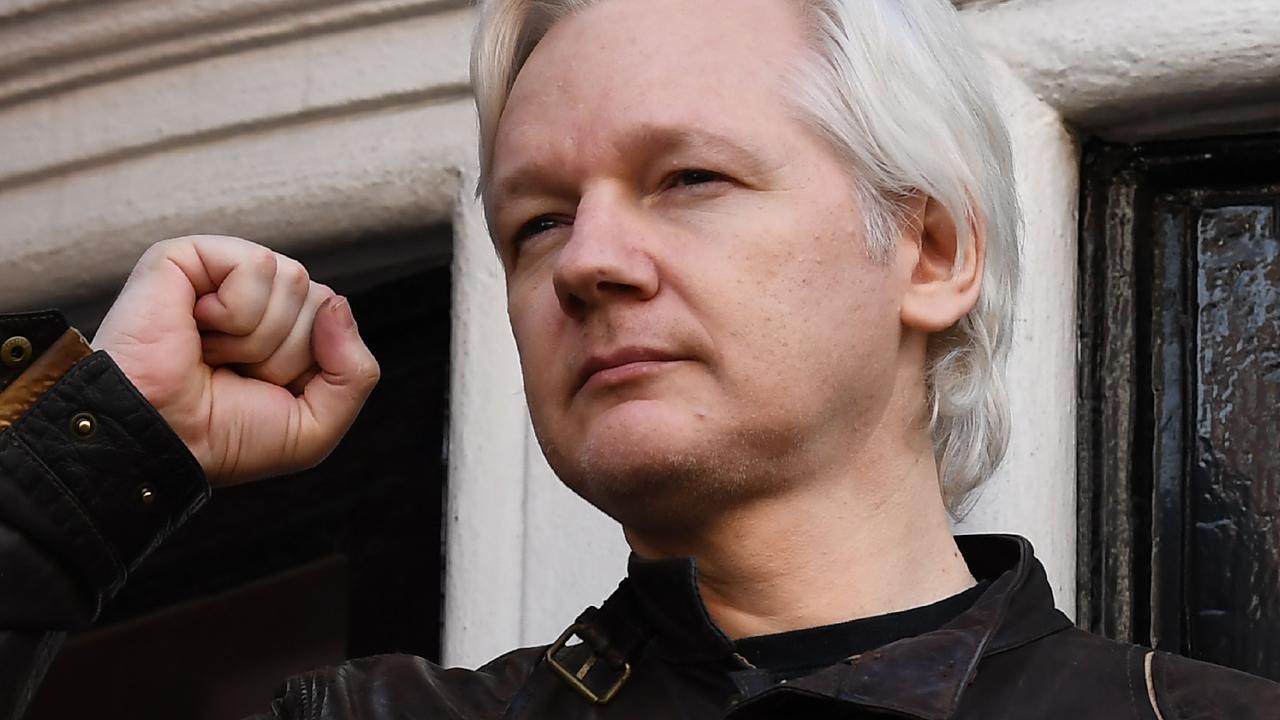Is WikiLeaks founder Julian Assange a waste of Federal MP Andrew Wilkie’s time?
Is Tasmanian MP Andrew Wilkie backing Julian Assange because it brings back his own whistleblower trauma, or is there a more substantive issue at stake, asks AMANDA DUCKER.
WHEN Andrew Wilkie visited Julian Assange in London’s Belmarsh Prison in February on a privately funded trip, the Australian Wikileaks founder said they had met before.
It was back when Wilkie, not Assange, was Australia’s most famous whistleblower.
“Julian reminded me that he came up to me at the Melbourne Writers’ Festival in 2004, when I wrote a book [Axis of Deceit] about my own time as a whistleblower, speaking out over Iraq,” the independent Federal MP for Clark said this week.
“He reminded me he had picked my brain about how he could set up some sort of safe mechanism for whistleblowers to ventilate information … I could then remember this young blond bloke.”
“So WikiLeaks is your fault,” I said with a smile in my Wednesday interview with Wilkie, ahead of a #freeassange rally in Hobart next Friday.
“Oh, no, no, no, no, no, not claiming that,” Wilkie replied, hands up, chuckling.

Wilkie will join speakers Senator Peter Whish-Wilson, Assange legal team member and Mercury columnist Greg Barns, and former Reuters Iraq bureau chief Dean Yates, two of whose reporting staff’s killings were shown in Wikileaks film Collateral Murder.
All are expected to reiterate their demand for Assange’s release from UK prison, where he is serving time for jumping bail in 2012, and for denial of a US Justice Department extradition request that would leave him facing a raft of hack collusion charges.
I requested my interview with Wilkie because I was not entirely convinced Assange was worthy of his advocacy.

Was Wilkie being swayed by his own traumatic experience as a whistleblower, when the high-level intelligence officer broke ranks to denounce as dishonest the case for a US-led coalition invasion of Iraq?
He received death threats, was called a traitor, and lost friends, money and his marriage.
“Of course I am attracted to supporting whistleblowers, given my history,” he said.
“My interest in Assange and his sources is very much shaped by my personal experience.”
He leapt across the office to fetch a framed photograph of his first press conference – where he was surrounded by almost the entire Canberra press gallery.
It was nerve-wracking, but he soon twigged to the value of their role.
“I learnt very quickly how much you need the media, to keep the issue alive and to protect you,” he said.

Wilkie believes Assange’s intention – like his own, back in 2003 – was to publicise information that was in the public interest and to do it impartially.
“All he did was publish hard evidence of US war crimes,” Wilkie said. “The fact he might be sent to the country he accuses of those war crimes is an absolute outrage.”
Fair enough. And bear in mind Assange’s charges relate to this period, not what he has or has not done subsequently.
Nevertheless, I was concerned when Wilkie added that WikiLeaks’ publication of Russian-hacked emails that damaged Hilary Clinton in the 2016 election lead-up somehow demonstrated impartiality.
“The fact he would publish material that was unhelpful for both sides of US politics I think is proof of him acting like a journalist and an impartial publisher,” Wilkie said.

At a time when information is weaponised as never before as a form of political inference and manipulated to create dissent, this analysis struck me as somehow naïve in relation to Assange, who has been savvy, at the very minimum, to this cybersphere of influence for a long time.
Could Wilkie not consider that a trapped and desperate Assange might make different choices than those of an idealistic blond approaching a famous whistleblower author for hot tips?
When I mentioned that April-released FBI documents revealed a direct Twitter correspondence between Assange and a disgraced Trump aide, Wilkie said he was not fully across this story development.
Roger Stone is the former Trump aide who was found guilty in November of obstructing a congressional investigation into Russian interference in the 2016 presidential election and specifically of lying to investigators about his relationship with Assange and WikiLeaks.
This is the aide whose sentence Trump commuted on July 11, in a move described by Republican Senator Mick Romney as “unprecedented, historic corruption”.
It’s as murky as.
Yet, I left my meeting with Wilkie ultimately backing the position he will take at Friday’s Hobart rally.
I did so because for Wilkie, the substantive issue is much bigger than Assange. Wilkie’s deeper concerns are the rights of Australians and the way in which Assange’s treatment might impact them. And they are compelling.
“This is a landmark case for Australia as far as the US claim to extraterritoriality,” he said.
“If Assange is extradited to the US and the Australian Government does not try to stop it, the precedent will have been set that if any Australian offends the government of another country – particularly if that Australian is a journalist – the Australian Government might allow their extradition to that country, including from Australia.”
The Parliament Lawn rally is on Friday at 12.30pm. Register your COVID-19 safe attendance via Facebook Events Free Assange Hobart


